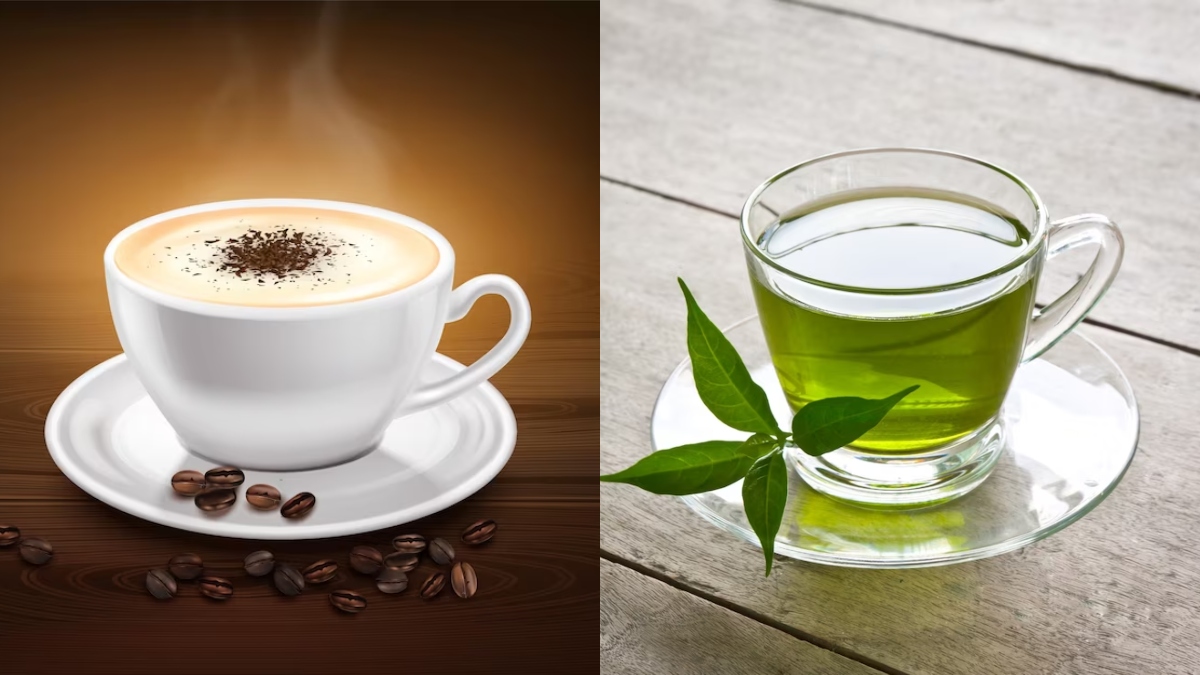
Green Tea vs. Coffee: A Caffeine Showdown
The morning ritual. The afternoon slump. The all-nighter fueled by sheer willpower. For many, caffeine is the lifeblood that keeps us going. But with a plethora of caffeinated beverages vying for our attention, the question remains: which source delivers the best experience? This article delves into the long-standing debate of green tea or coffee caffeine, dissecting their effects, benefits, and drawbacks to help you make an informed choice.
Both green tea or coffee are globally consumed beverages, each boasting a rich history and distinct cultural significance. Coffee, with its robust aroma and invigorating kick, has become a staple in countless societies. Green tea, revered for its delicate flavor and purported health benefits, holds a prominent place in Eastern cultures. But beyond their cultural differences, the core comparison boils down to the caffeine they provide.
The Caffeine Conundrum: Understanding the Basics
Caffeine, a naturally occurring stimulant found in various plants, primarily affects the central nervous system. It works by blocking adenosine, a neurotransmitter that promotes relaxation and sleepiness. By blocking adenosine, caffeine increases alertness, reduces fatigue, and enhances cognitive function. The effects, however, can vary based on individual sensitivity, dosage, and the source of caffeine.
Green tea or coffee, both contain caffeine, though the amounts differ significantly. A typical cup of coffee (around 8 ounces) can contain anywhere from 80 to 200 milligrams of caffeine, depending on the brewing method, the type of bean, and the roast. Green tea, on the other hand, typically contains less caffeine, ranging from 28 to 45 milligrams per 8-ounce serving. This lower caffeine content often results in a gentler, more sustained energy boost compared to the sometimes abrupt jolt of coffee.
Coffee: The Bold and the Brisk
Coffee’s popularity is undeniable. Its rich flavor profile and immediate energy boost make it a go-to choice for many. The high caffeine content in coffee provides a rapid and intense stimulation, perfect for those needing a quick pick-me-up. However, this rapid onset can also lead to a subsequent crash, leaving you feeling tired and irritable later in the day.
Beyond the caffeine, coffee contains various antioxidants, including chlorogenic acid, which may offer some health benefits, such as reduced risk of type 2 diabetes and improved liver health. However, excessive coffee consumption can lead to several side effects, including anxiety, insomnia, and digestive issues.
Pros of Coffee:
- High caffeine content for a strong energy boost.
- Rich flavor profile and wide variety of brewing methods.
- Contains antioxidants.
Cons of Coffee:
- Can lead to anxiety, insomnia, and digestive issues.
- Rapid energy boost followed by a crash.
- Can be addictive.
Green Tea: The Gentle Guardian
Green tea or coffee, and in the comparison, green tea offers a different experience. While it contains less caffeine, the presence of L-theanine, an amino acid, creates a synergistic effect. L-theanine promotes relaxation without drowsiness and can smooth out the stimulating effects of caffeine. This combination often leads to a more stable and sustained energy boost, without the jitters or crash associated with coffee.
Green tea is also packed with antioxidants, particularly catechins, which are linked to numerous health benefits. Studies suggest that green tea may help improve brain function, promote weight loss, and reduce the risk of certain cancers and heart disease. Furthermore, the lower caffeine content makes it a better choice for those sensitive to caffeine or seeking a more gentle stimulation.
Pros of Green Tea:
- Lower caffeine content for a gentler energy boost.
- Contains L-theanine for a smoother, more sustained effect.
- Rich in antioxidants with numerous health benefits.
- Less likely to cause anxiety or insomnia.
Cons of Green Tea:
- Lower caffeine content may not provide the same level of alertness as coffee.
- Can be bitter if brewed improperly.
Caffeine Content: A Comparative Analysis
The caffeine levels in green tea or coffee can vary significantly. Here’s a general guideline:
- Coffee: 80-200 mg per 8-ounce cup (depending on the bean, roast, and brewing method).
- Green Tea: 28-45 mg per 8-ounce cup (depending on the variety and brewing time).
Factors such as the type of coffee bean (Arabica vs. Robusta), the roast level (darker roasts typically have less caffeine), and the brewing method (espresso vs. drip) can influence the caffeine content in coffee. Similarly, the variety of green tea (Sencha vs. Matcha), the brewing time, and the water temperature can affect the caffeine levels. For those particularly sensitive to caffeine, decaffeinated versions of both coffee and green tea are readily available, though they still contain trace amounts of caffeine.
Beyond Caffeine: Other Considerations
The choice between green tea or coffee isn’t solely about caffeine. Other factors, such as individual preferences, health conditions, and overall lifestyle, play a crucial role. For instance, individuals with anxiety or heart conditions might be advised to moderate their coffee intake due to its higher caffeine content. Those seeking a gentler, more sustained energy boost might find green tea more suitable.
Furthermore, the way the beverages are prepared and consumed can influence their impact. Adding sugar, cream, or other additives can significantly alter the nutritional profile and potential health benefits. Choosing organic, high-quality coffee beans and green tea leaves is recommended to minimize exposure to pesticides and other harmful substances.
The Verdict: Which is Right for You?
There is no definitive “winner” in the green tea or coffee caffeine debate. The best choice depends on individual needs and preferences. Coffee offers a potent, immediate energy boost, making it ideal for those needing a quick pick-me-up. Green tea provides a gentler, more sustained energy boost, along with a host of health benefits, making it a good choice for those seeking a more balanced experience.
Ultimately, the key is to listen to your body. Pay attention to how each beverage affects you, and adjust your consumption accordingly. Moderation is key. Whether you choose green tea or coffee, be mindful of your caffeine intake and its impact on your overall health and well-being. Both beverages can be enjoyed as part of a healthy lifestyle, provided they are consumed responsibly.
Making the Right Choice for Your Needs
To summarize, consider the following when choosing between green tea or coffee:
- Energy Needs: If you need a quick, strong boost, coffee might be preferable. For a more gradual and sustained energy lift, green tea could be a better choice.
- Sensitivity to Caffeine: If you are sensitive to caffeine, green tea’s lower levels could be beneficial.
- Health Goals: Consider the potential health benefits of each beverage. Green tea is rich in antioxidants, while coffee also offers some benefits.
- Personal Preference: Ultimately, choose the beverage you enjoy most. Taste, aroma, and the overall experience play a significant role.
Both green tea or coffee, when consumed responsibly, can be valuable additions to your daily routine. By understanding their differences and individual effects, you can make an informed decision that best suits your needs and lifestyle. Experiment, listen to your body, and find the perfect balance that keeps you energized and healthy.
Final Thoughts
The choice between green tea or coffee is a personal one. Both beverages offer unique benefits and drawbacks. Coffee delivers a powerful, immediate boost, while green tea provides a gentler, more sustained energy with added health advantages. By understanding the nuances of each, you can make an informed decision that aligns with your individual needs and preferences. Remember to prioritize moderation and listen to your body to optimize your caffeine experience.
[See also: Related Article Titles]


